Search
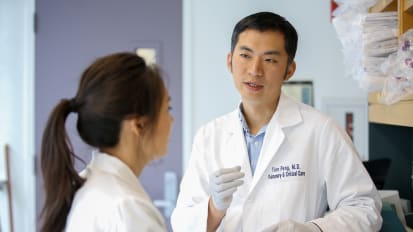 News
News
UCSF-led Study Uncovers Unique Stem Cell Trajectory in Lungs Damaged by COVID-19 and Pulmonary Fibrosis
In a collaborative study between UCSF researchers appearing December 30 in Nature Cell Biology, UCSF researchers Jaymin Kathiriya, PhD, and Chaoqun Wang, PhD, discovered that severe lung injuries can trigger lung stem cells to undergo abnormal differentiation. Drs. Kathiriya and Wang, supervised by Hal Chapman, MD, and Tien Peng, MD, respectively, utilized stem cell organoid models to uncover a novel stem cell pathway that is seen in severely injured lungs from COVID-19 and idiopathic pulmonary fibrosis patients.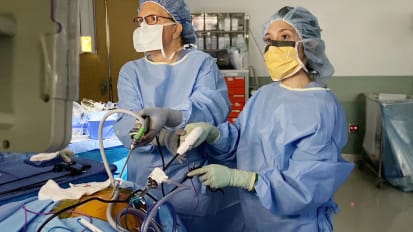 News
News
UCSF Case Study: Same-Day Discharge After Pheochromocytoma Removal
San Francisco endocrine surgeon Sanziana Roman, MD, performed a posterior retroperitoneoscopic adrenalectomy (PRA) to remove a pheochromocytoma. This approach enabled the patient to be discharged home within hours of surgery and avoid prolonged hospitalization, thereby minimizing COVID-19 risk. News
News
UCSF Study Finds 25% of Patients with HPV+ Oropharynx Cancer May Require Chemoradiotherapy After Robotic Surgery
In a nearly 10-year retrospective study involving 136 carefully selected patients with HPV-positive (HPV+) oropharynx cancer, UC San Francisco researchers found that one in four may meet possible indications for adjuvant chemoradiotherapy following transoral robotic surgery (TORS).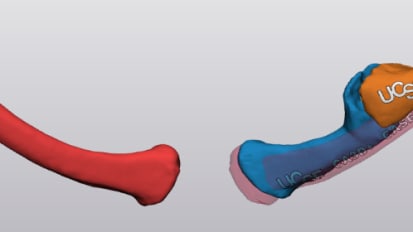 News
News
How 3D-Printed, Patient-Specific Models Reduce Orthopaedic Surgery Time and Improve Patient Outcomes
In this interview, Alexis Dang, MD, talks about the benefits to patients and surgeons and the first time he used a 3D-printed, patient-specific model for surgical planning. Video
Video
UCSF Osher Center Overview: Integrative Medicine’s Value for Providers and Patients
Sanford C. Newmark, MD, medical director of the UCSF Osher Center for Integrative Medicine, explains what integrative medicine is (hint: it’s neither “alternative medicine” nor homeopathy) and how referred patients can benefit from its proven techniques. News
News
Activating Immune Surveillance Mechanisms Shows Promise for Treating Diabetes and Pulmonary Fibrosis
Researchers at UC San Francisco recently found that activating invariant natural killer T (iNKT) cells eliminated inflammatory senescent cells associated with chronic diseases in vivo. In the study, obese mice showed improved glucose control and mice with pulmonary fibrosis had decreased lung fibrosis and increased survival.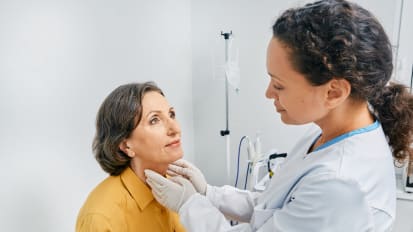 Video
Video
Handling Hypothyroidism: Management Basics and Pearls
Get more comfortable assessing patients for this common disorder, determining whether treatment is appropriate and initiating levothyroxine therapy. Endocrinologist Chienying Liu, MD, illuminates such issues as when to treat subclinical hypothyroidism.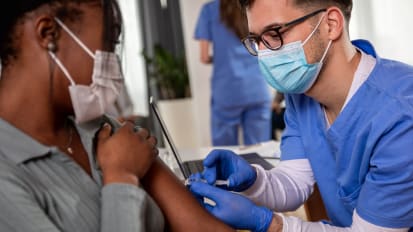 Video
Video
Getting to the Heart of COVID: Do Infections or Vaccines Cause Cardiac Harm?
Cardiologist Clifton Watt, MD, offers new insights on the pathogenesis of heart problems resulting from COVID; breaks down the evidence on whether novel treatments – neutralizing antibodies and antivirals – have therapeutic or preventive value; then presents a risk-benefit analysis for the available vaccines, incorporating new data. News
News
Endoscopic Removal of a Giant Pituitary Adenoma: A UCSF Case Study
A patient’s giant pituitary adenoma was successfully removed at UC San Francisco via endoscopic transsphenoidal surgery, a technique that offers exceptional visualization.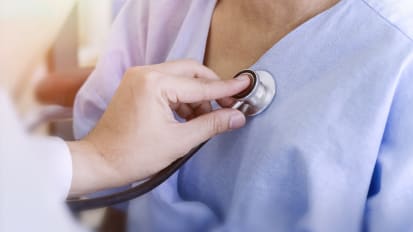 Document
Document
A Referral Guide for Physicians - UCSF Heart and Vascular Center
The UCSF Heart and Vascular Center is home to a world-class team of cardiologists, heart surgeons, vascular surgeons, transplant surgeons and other specialists, all working collaboratively to provide the highest-quality care for patients. News
News
Virtual Inpatient Diabetes Management Tools Minimize COVID-19 Risk for Staff and Improve Patient Outcomes
Automated virtual tools for inpatient diabetes management in use at UC San Francisco have helped the medical staff deliver safe and effective patient care while reducing their exposure to SARS-CoV-2. News
News
Patients with Intractable Headaches Find Relief at the UCSF Inpatient Headache Unit
UCSF Inpatient Headache Unit treats patients with headache disorders through intravenous infusions of medications such as dihydroergotamine, chlorpromazine and valproate. Patients experiencing frequent and severe migraine, cluster, post-traumatic and other headaches have had their pain alleviated through this service, which is offered by the UCSF Headache Center. News
News
UCSF Earns AHA Award for Improving Quality of Care for STEMI Patients
UC San Francisco has earned the American Heart Association’s Mission: Lifeline® Silver Plus Receiving Achievement Award for implementing specific quality improvement measures in treating patients who suffer severe heart attacks. Document
Document
Liver Transplant Program and Referral Information
With more than 13,000 people in the United States with end-stage liver disease awaiting a liver transplant,UCSF has made liver transplantation services a high priority. Video
Video
The Road to Motherhood: Simple Rules for Navigating Pregnancy in Primary Care
The PCP is the first line of care for women planning or beginning a pregnancy, and their questions range from “Which vitamins do I need?” to “Should I get genetic testing?”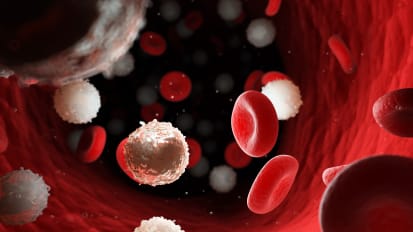 News
News
International Hematologic Conference Features UCSF Health Experts
Hematologists and oncologists from around the world will present new research and clinical findings at the American Society of Hematology’s (ASH) 63rd Annual Meeting and Exposition. This year’s meeting will be held in Atlanta, Georgia – and virtually – from December 11-14, 2021.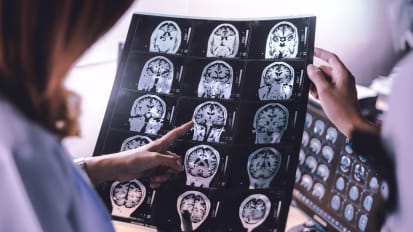 Document
Document
Referral Guide for Physicians - Neurology and Neurological Surgery
Referral and specialty care clinic information provided by UC San Francisco’s departments of Neurology and Neurological Surgery. News
News
International Breast Cancer Conference Features UCSF Health Experts
Breast cancer experts from UCSF Health will present new research and clinical findings at the annual San Antonio Breast Cancer Symposium, the world’s largest and most prestigious breast cancer conference. This year’s meeting will be held Dec. 7-10. Document
Document
Clinical Advance - Minimally Invasive Cardiac Surgery
UCSF Health is a major referral and destination center for minimally invasive cardiac surgery, featuring high volumes, extensive experience and quality outcomes. Video
Video
Jabs for Joints and Tendons: Hurting Patients Want PRP and Stem Cells – But Do They Work?
Patients with aching knees, elbows and other common musculoskeletal problems hope that platelet-rich plasma or stem cell injections could bring relief – and they have lots of questions. News
News
UCSF’s Julie Ann Sosa, MD, Named President-Elect of the American Thyroid Association
Julie Ann Sosa, MD, MA, FACS, endocrine surgeon and chair of the Department of Surgery at UC San Francisco, has been named president-elect of the American Thyroid Association (ATA). She was previously the ATA’s treasurer. News
News
Javid Moslehi, MD, Named Chief of the New UCSF Cardio-Oncology & Immunology Program
Javid Moslehi, MD, has been named section chief of the new Cardio-Oncology & Immunology Program at UC San Francisco, which brings together cardiologists, oncologists, immunologists and researchers to promote the cardiovascular health of patients during cancer treatment and survivorship.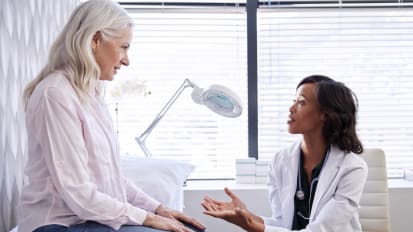 Video
Video
Screening for Cervical Cancer: New Evidence on Options and Outcomes
Gynecologic oncologist Megan Swanson, MD, MPH, deciphers recent changes to cervical cancer screening guidelines and uses the data to illuminate the relative value of test options – Pap smears, detection of high-risk HPV strains, or both tests together. Video
Video
The Misery of Everyday Back Pain: Primary Care Keys to Better Outcomes
Pain specialist Conor W. O’Neill, MD, director of the UCSF Nonoperative Spine Program, presents a straightforward approach to assessing low back pain in primary care, including how to efficiently rule out serious causes and how to recognize the multiple factors – biological, psychological and social – that contribute to pain.

